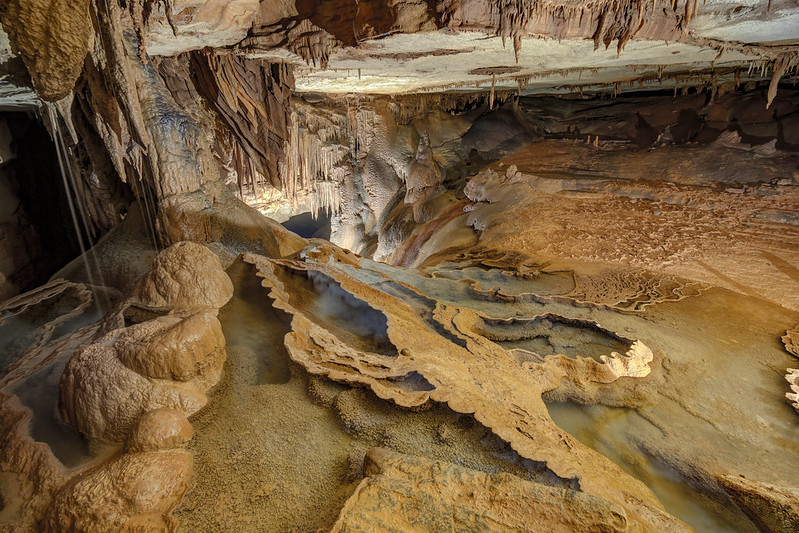
A landowner with a cave on their property recently reached out to me and asked the following, "I have been wanting to get in touch with someone knowledgeable regarding caves and discuss one I have on our property... Just wondering if it would be beneficial for the cave to be assessed by a professional and any advice to preserve it." This is an excellent question, and I probably should have been better prepared to answer it.
As someone who frequently explores caves, and who frequently meets landowners with caves, I think the more precise question to ask is "What benefit is it to me that my cave be described?"
I'll throw some potential benefits out, which may or may not entirely match the uniqueness of a particular cave.
Preservation through Awareness
We cannot protect something which we don't know about or understand. Understanding and documenting what lies within caves allows us to craft effective conservation efforts. By knowing the value and significance of these sites, there's a higher likelihood of implementing measures to protect them from vandalism, looting, or unintentional damage.
|

|
Educational Opportunities
Access to caves can be a gateway for educational programs. Allowing exploration can facilitate field trips for students, enabling hands-on learning experiences about geology, biology, history, and environmental conservation. Experienced cavers have equipment to take all kinda of people safely caving. One of our favorite things is to take a landowner into their own cave to places they wouldn't otherwise be able to get to!
|

|
Scientific Research
Caves can be places to collect scientific data, such as dates from speleological formations, measurements taken in unique ecosystems, and potentially describe new species. Encouraging exploration allows scientists to conduct research that contributes to our understanding of geology, biology, ecology, and hydrology.
|

|
Cultural Heritage
Some caves have historical and cultural significance, containing evidence of past human habitation, artwork, or rituals. Preserving these sites allows for a deeper understanding and appreciation of our cultural heritage. Some Tennessee caves are places where people held church services, some were used as places to play music and dance while enjoying a respite from warm summer temperatures. Some of our caves were mined for saltpetre for the War of 1812 and the American Civil War. These are a shared heritage that we need to study, understand, and preserve. Many times it is literally the landowner's own heritage which they may or not be aware of.
|
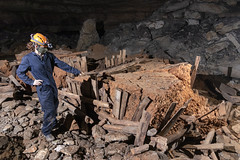
|
Environmental Monitoring
Caves can serve as natural indicators of environmental changes. Studying them over time can provide insights into climate shifts, groundwater patterns, and their impact on ecosystems.
|
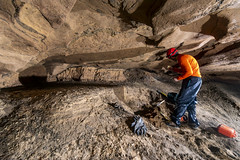
|
Collaborative Partnerships
Encouraging cooperation between cavers, landowners, and relevant authorities fosters a sense of shared responsibility. This collaboration can establish guidelines for responsible exploration and conservation.
|
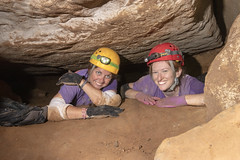
|
Legacy
Caves are often christened with names as per the landowners' preferences. While some restrictions may apply, there's an opportunity to immortalize your family's surname alongside the word 'cave.' Additionally, contingent upon cartographic and photographic resources, cavers can provide you with a comprehensive map and captivating photos of your cave. Picture this: impress your colleagues with stunning cave images and an intriguing tale—'I have a cave named after me.' It's a unique legacy that adds an intriguing dimension to your family history.
|

|
Curiosity
We are a curious species. The caves themselves tell that story - caves in Tennessee were explored 6000 years ago by barefoot Native Americans with river cane torches. Why? Because they were curious. I am too, and so are you probably. We are curious.
|
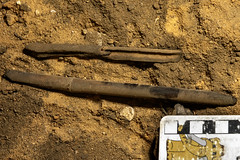
|
In documenting caves, we go beyond mere exploration. It's a commitment to preserving our natural heritage, fostering education, advancing scientific knowledge, and safeguarding cultural legacies. By understanding and cataloging these subterranean wonders, we illuminate pathways to environmental conservation and collaborative stewardship. The caves hold stories of our past, present, and future—each passage and formation is a thread in the rich tapestry of our world. Embracing the documentation of caves isn't just an act of curiosity; it's a way to access our collective history and it can be a gift to the generations yet to come.
If you have a cave you want to document, consider contacting your local grotto (caving club). You can find a list of them here:
https://caves.org/find-a-grotto/
 A landowner with a cave on their property recently reached out to me and asked the following, "I have been wanting to get in touch with someone knowledgeable regarding caves and discuss one I have on our property... Just wondering if it would be beneficial for the cave to be assessed by a professional and any advice to preserve it." This is an excellent question, and I probably should have been better prepared to answer it.
A landowner with a cave on their property recently reached out to me and asked the following, "I have been wanting to get in touch with someone knowledgeable regarding caves and discuss one I have on our property... Just wondering if it would be beneficial for the cave to be assessed by a professional and any advice to preserve it." This is an excellent question, and I probably should have been better prepared to answer it.







Comments